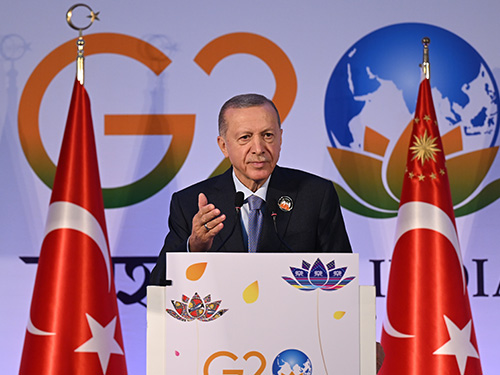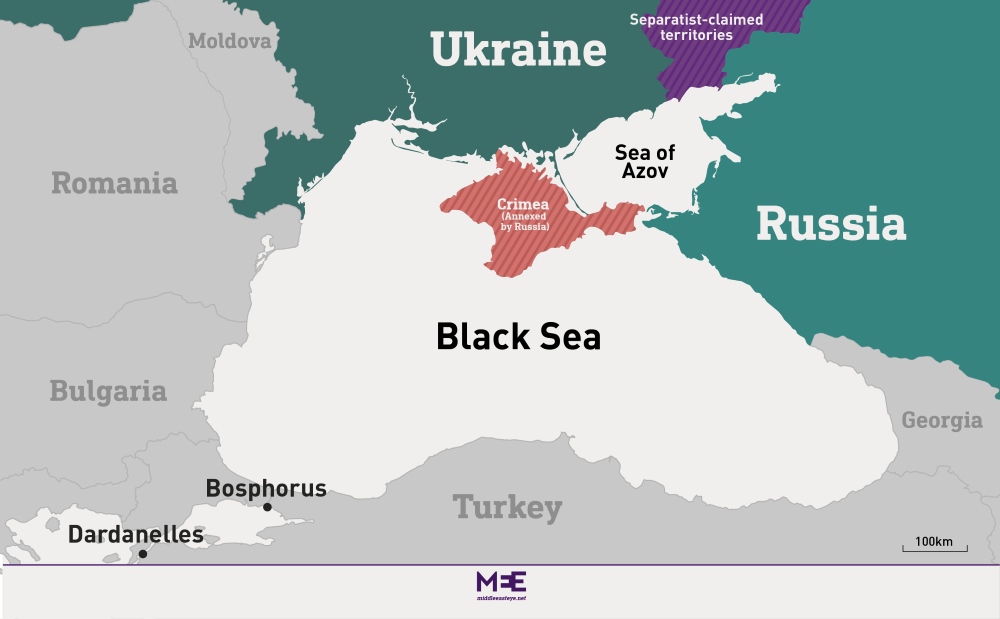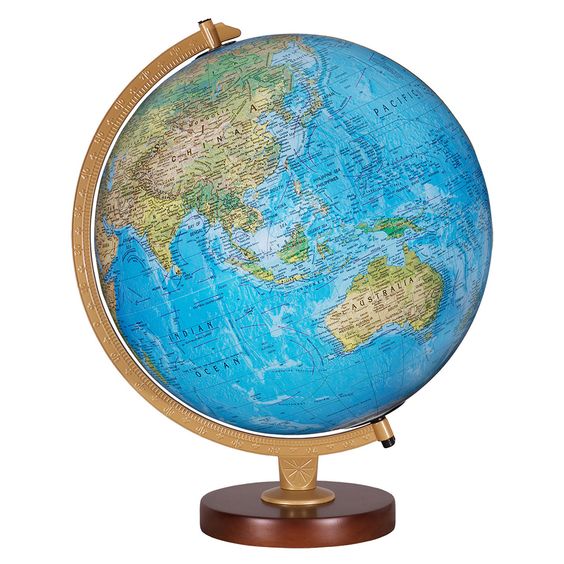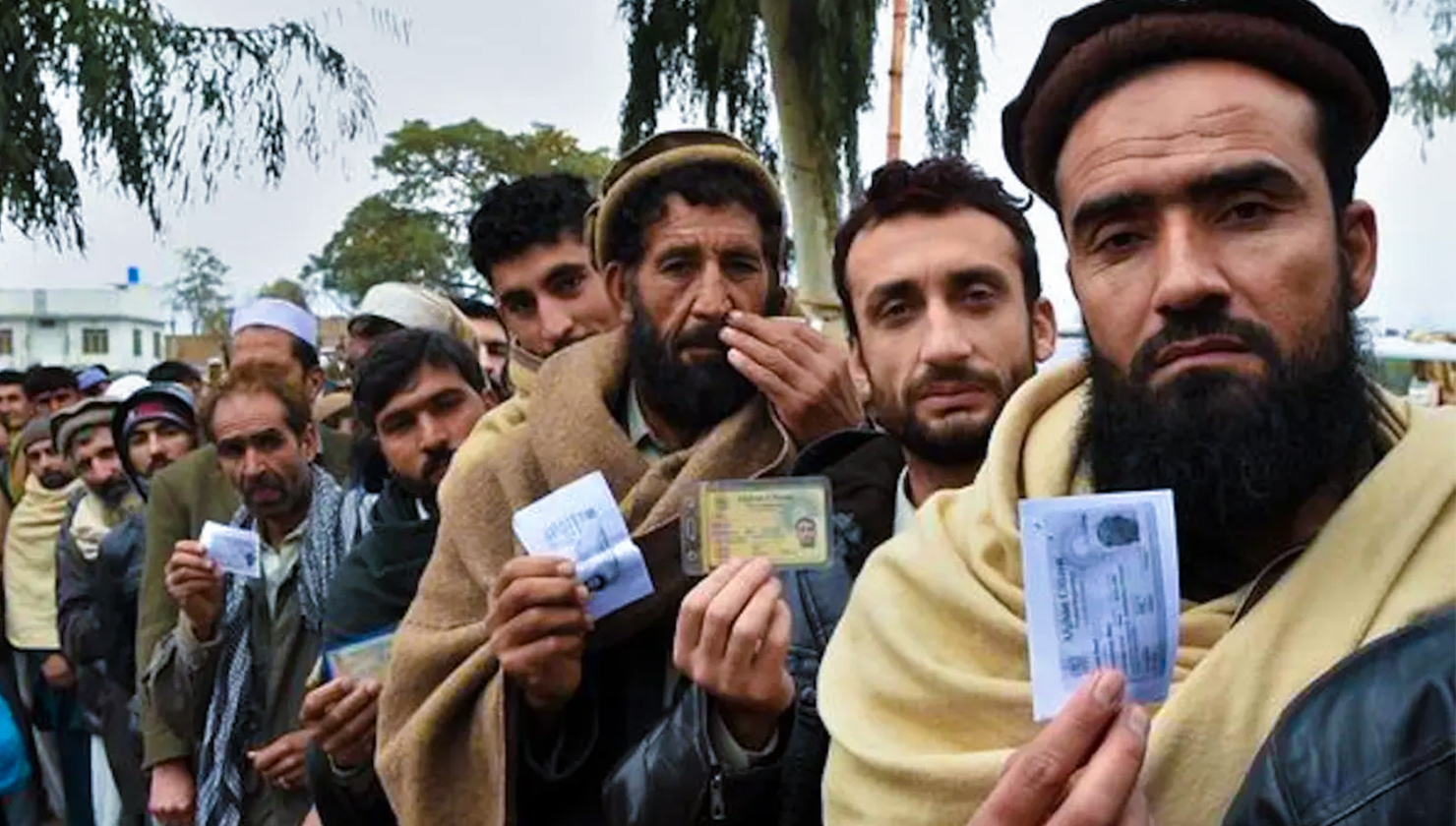
As the fighting on land grinds to a bloody stalemate, the importance of naval power has dramatically increased
By Tom Arms
Turkey is emerging as a pivotal country in the Ukraine War. As the fighting on land grinds to a bloody stalemate, the importance of naval power has dramatically increased.
As far as Ukraine and Russia are concerned this means the Black Sea and the Bosporous and Dardanelles that links the sea to the wider world. Turkey has control over these straits through a series of conventions dating back to the early 19th century.
Unsurprisingly, President Recep Tayyip Erdogan, is using his position to extract every possible concession from the Russians, Ukrainians and NATO.
At the start of the war the naval balance weighed heavily in Russia’s favor. The Ukrainians had one warship stuck in the repair yard. Moscow, on the other had its Crimea-based Black Sea fleet of 40 surface ships and seven submarines.
Putin used his naval superiority to good advantage. A successful amphibious landing was staged at Mariupol and the Sea of Azov and Kerch Straits were closed to Ukrainian shipping. Odessa and other southern Ukrainian ports were effectively closed by a Russian blockade, bombardment and minefield.
Then the Ukrainians hit back with shore to ship missiles and drones. The first major victim was the fleet flagship, the cruiser Moskva. Then the bridge connecting Russia to Crimea was bombed and now Russian naval installations on Crimea are under bombardment.
 Putin badly needs to reinforce his Black Sea naval forces with ships from the Pacific, Baltic and Mediterranean commands. But he can’t. And the reason for this takes us back to the 19th and early 20th centuries and Moscow’s perennially unsuccessful efforts to gain control of the Dardanelles and Bosporus.
Putin badly needs to reinforce his Black Sea naval forces with ships from the Pacific, Baltic and Mediterranean commands. But he can’t. And the reason for this takes us back to the 19th and early 20th centuries and Moscow’s perennially unsuccessful efforts to gain control of the Dardanelles and Bosporus.
Moscow’s first attempt came in the aftermath of the 1828-29 Russo-Turkish War in which the rising Russian Empire defeated the declining Ottoman Empire. As part of the price of victory, Tsar Nicholas I demanded that the straits be closed to all non-Black Sea states.
This would have left the Russian navy in de facto control of the Black Sea which includes all the shipping from the Danube River basin and the northern coast of Turkey. It would also have provided them with their long-sought warm water access. Stalin made a similar attempt at the start of World War II the Cold War.
In the 20th century Russian pressure led to the Truman Doctrine and Turkish membership of NATO. In the 19th century the Turks appealed to the West European powers for diplomatic support. The result was the 1841 London Straits Convention in which Britain, France and Prussia pressured Russia into to accepting that only Turkish military ships could traverse the straits in peacetime. This convention was reaffirmed by Russia’s defeat in the 1853-56 Crimean War at the hands of Britain, France and the Ottomans.
The bones of the 1841 treaty are still in effect and have been added to by 1936 Montreux Convention. This guarantees the free passage of civilian shipping but limits the size of warships allowed through the straits and how long they are allowed to stay in the Black Sea. Responsibility for implementing the various treaties lies with Turkey. If Turkey is not at war then it has the right to block the passage of any ships at war. If it is at war then it can take any action that it deems necessary. On February 28, 2022—six days after the Russian invasion of Ukraine—Turkey closed the Dardanelles to all warships.
Turkey is using its role as geostrategic policeman to extract concessions from all sides. It is saving billions by withholding payments on Russian gas. It has also ignored NATO sanctions to double its trade with Russia in one year. At the same time, Turkey’s clout within the alliance has increased because of its treaty power to treat the Dardanelles as it “sees fit” if it came to a NATO-Russian conflict.
 World Review
World Review
The ripple effects following the ejection of Kevin McCarthy from the Speaker’s chair in the US House of Representatives are severe and wide-reaching. The issues most affected are moderates in the Republican Party, Ukraine and the credibility of the United States.
The mainstream of the Republican Party—or at least the congressional caucus—is not as unreasonably far-right as it is portrayed. Out of the 221 Republican members of the lower house, only 40 are signed up members of the right-wing Freedom Caucus. And of those, only about 20 could be considered extreme right by American standards.
The problem is that the Freedom Caucus—especially the far-right 20 or so members—are really a separate political party using the broad coattails of the Republican establishment to pursue policies which are antithetical to their own party. They can succeed in their aims because the Republicans’ majority as a whole is so narrow that the Freedom Caucus holds the balance of power.
In practice this means that the next Speaker could easily be Congressman Jim Jordan, a rabid Trump supporter and founding member of the Freedom Caucus. He has already secured the ex-president’s endorsement.
It also means that Ukraine will find it difficult to secure the next tranche of US military aid it has been promised. For the Freedom Caucus and Donald Trump the issue of self-determination and respect for the rule of law comes after support for Vladimir Putin.
The ejection of McCarthy also makes a US government shutdown almost certain. It was McCarthy’s successful 11th-hour deal to prevent a shutdown which provided the straw that broke the back of the caucus camel. Any future Speaker will be all too aware that he will suffer the same fate if he allows Biden’s budget through Congress.
All of the above bolsters the belief that political divisions are rendering the US ungovernable. This in turn undermines credibility at home and abroad. America is the recognized standard bearer of world democracy. Alternative systems—especially Russia, China and Iran—argue that if democracy can’t work in America… then it can’t work.
Support for Ukraine this week suffered a blow on the European side of the Atlantic as well as the American.
It came in the form of an election victory for the pro-Russian Slovakian politician Robert Fico and his Direction-Social Democracy (or SMER-SD) Party. Fico’s party failed to win an outright majority in parliament, but with 24 percent of the votes it is the largest single party and is currently in coalition talks with smaller pro-Russian parties.
They have until 16 October to form a government and in the interim period have announced an end to all aid to Ukraine; a block on Ukrainian membership of NATO and an end to Slovakian support for EU sanctions against Russia.
Unlike most of the current batch of European populist parties, SMER-SD is left as opposed to right-wing. This, however, has not prevented Hungary’s populist right-winger Viktor Orban from welcoming Fico’s victory. Clearly common ground on the populist positions on the EU, Russia, gay rights, woke culture, immigration, media restrictions, curbs on the judiciary, sanctions and the war in Ukraine trumps the political spectrum issue.
This is not Fico’s first run at Slovak prime minister. He was initially elected to the job in 2012 with a whopping 83-seat majority. He was forced into coalition after the 2016 election and shortly afterward ran unsuccessfully for the presidency. In 2018 he was forced to resign as prime minister after the murder of investigative journalist Jan Kuciak. He had been investigating the Slovakian mafia and police later linked Maria Troskova, Fico’s assistant, to the gangs.
Another one of the casualties of Fico’s victory is Zuzana Caputova. She was seen as a liberal hope for Slovakian politics when she was elected in 2019. The post is largely ceremonial but the Slovakian president does make the top judicial appoints, ratifies international treaties, is commander-in-chief of the armed forces and can veto legislation.
There is no love lost between Caputova and Fico. During the recent parliamentary campaign, Caputova and her family were subjected to repeated smear campaigns and death threats. Fico has branded her an “American agent.” After Fico’s victory, President Caputova said she would not stand for re-election.
India’s press freedom suffered another blow this week. And because a free press is a vital component of democratic government—so did its claim to be the title of the “world’s largest democracy.
The Indian media has for years been under attack from Narendra Modi’s government and Hindu-nationalist Baharatiya Janata (BJP) Party. But the attacks have been relatively subtle in nature.
If the government disliked what a journalist was writing then a quiet word was whispered into the editor or publisher’s ear. If they didn’t listen then access to officials would be reduced or, in some cases, the tax authorities would launch an investigation into the company or individual’s finances.
The anti-media activities have even been extended to the foreign media. Recently the BBC offices in New Delhi were raided by the tax authorities after the BBC aired a two-part documentary critical of Modi’s time as chief minister of Ghopal.
But this week the government took the wholly unsubtle step of swooping on the offices of an anti-Modi news website called Newsclick. Forty-six people were detained and the editor and key personnel have been arrested on terrorism charges. Police claim that they were using the website to carry Chinese propaganda.
Newsclick’s editor—who is also its founder—denies the charges. But there is not much he can do to fight it because under India’s draconian terrorism laws it is almost impossible to receive bail.
Traditionally India has one of the world’s biggest newspaper readerships. But the World Press Freedom Index ranks it at 160 out of 180 countries—and dropping.
Meanwhile, India’s relations with Canada continue to plummet in the wake of Canadian accusations that Indian intelligence was behind the murder of a pro-Sikh nationalist Canadian citizen on Canadian soil. The two countries have already ordered out each other’s ambassadors (or High Commissioners as they are both Commonwealth countries). This week India further strained relations by expelling another 41 Canadian diplomats.
Canada meanwhile, is pressuring the US and UK to be more outspoken about alleged extra-territorial murders and the slide in Indian freedoms.
Elsewhere in South Asia, Afghan-Pakistan relations are on the downward slide. This follows this week’s announcement by the Pakistani government that 1.7 million illegal Afghan refugees must leave the country by November. If they fail to do so, say the authorities, they will be rounded up by the army and forcibly repatriated back across the Pakistan-Afghan border.
The interwoven cross border ethnic and tribal ties have complicated Afghan-Pakistan relations since before the days of the British Raj. Whenever problems have arisen in either country, families have crossed the border (mainly from Afghanistan to Pakistan) to seek help from relatives on the other side.
 During the ten-year Soviet occupation some 4 million-plus Afghans crossed into Pakistan. These were mainly Islamic militants opposed to communist rule. When the Taliban took over it was the anti-Taliban forces who crossed and when the Taliban was forced out of Kabul the Jihadists were back in Pakistan.
During the ten-year Soviet occupation some 4 million-plus Afghans crossed into Pakistan. These were mainly Islamic militants opposed to communist rule. When the Taliban took over it was the anti-Taliban forces who crossed and when the Taliban was forced out of Kabul the Jihadists were back in Pakistan.
With each shift a proportion of refugees found permanent homes and were given permanent residence status or Pakistani citizenship. There are roughly 2.1 million such Afghans in Pakistan. They are unaffected by the current expulsion order.
The current crop of illegal immigrants tend to be the Afghan group most opposed to the Taliban regime in Kabul and therein lies the problem for Pakistan because these Afghans use Pakistan for cross-border raids into Afghanistan and the Taliban retaliate with destabilizing raids into Pakistan.
Refugees are also a perennial EU problem. But the EU heads of government think they have come with a solution, the details of which they hope to finalize at a summit in Granada this weekend.
The need for action has been underscored by the rapid recent rise in African migrants landing in Southern Europe this year—190,000 so far this year. Many of them were forced to flee after flooding in Libya left an estimated 40,000 homeless. The UN estimated at 2,500 have died so far this year trying to cross the Mediterranean in small boats.
The problem is that the existing EU agreements place an undue burden on the migrants’ first landfall in Europe. In practice this means Italy where 130,000 refugees have arrived so far this year.
The Italians have been arguing for years that the burden of the refugees should be shared equally between EU member countries. The problem is coming up with the right formula. Commission officials believe that they have found it with a system they call “solidarity contributions”.
Under this new scheme different EU countries can choose how they share the burden of caring for refugees in one of three ways: 1- they can take some of the refugees; 2- they can assume more administrative responsibility for handling asylum claims and/or 3- they can provide financial assistance or other help to countries taking refugees.
This proposal will still be opposed by the staunch anti-immigrant governments in Poland, Slovakia, Hungary and Austria. But they can’t block it. The issue comes under the new qualified majority voting rules which means it passes if it receives the support of 15 EU member states representing 65 percent of the bloc’s population.
_____________
 Tom Arms is foreign editor of Liberal Democrat Voice and is currently working on an update of his “Encycloapedia of the Cold War”.
Tom Arms is foreign editor of Liberal Democrat Voice and is currently working on an update of his “Encycloapedia of the Cold War”.